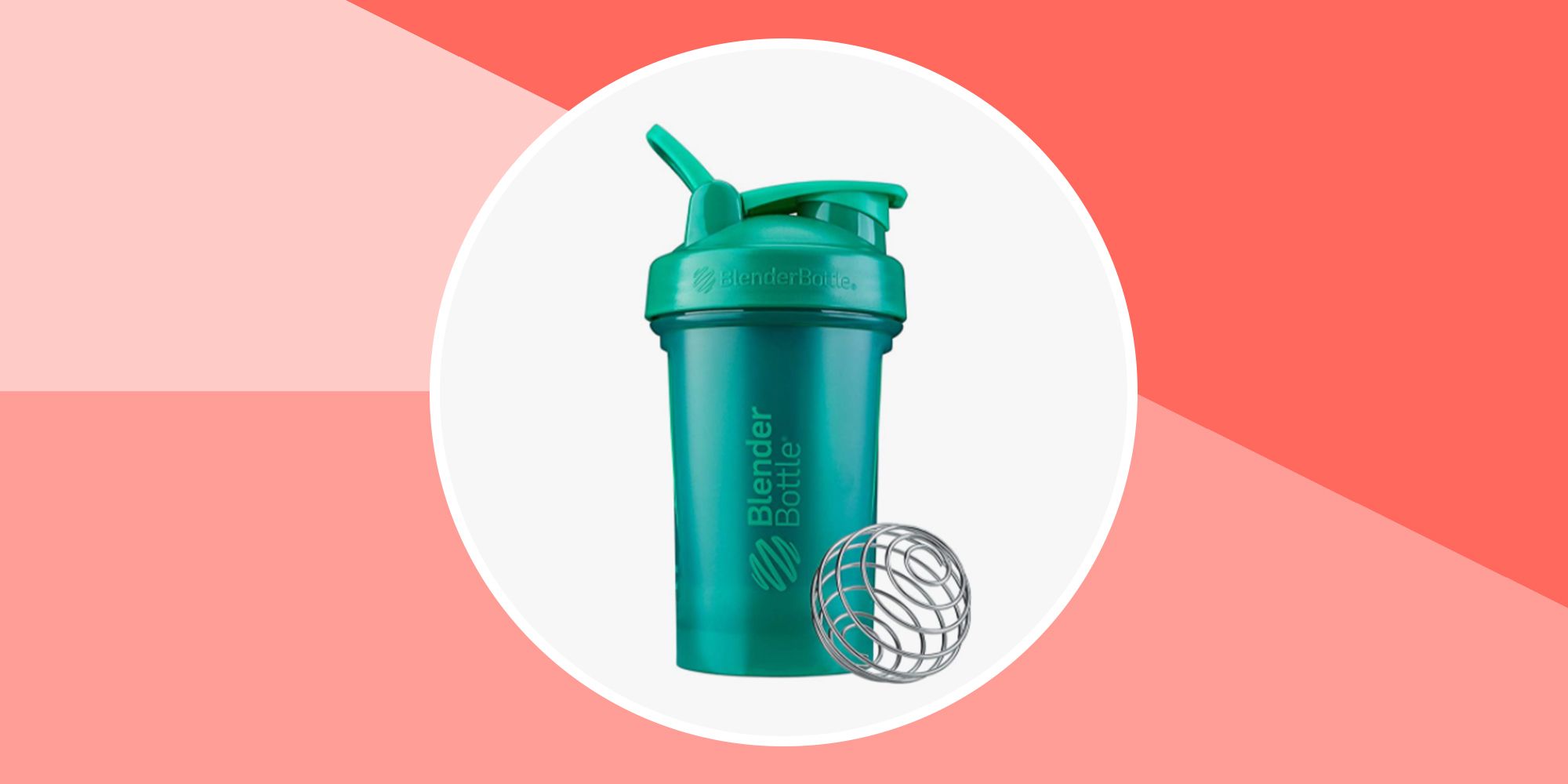Home » Diet & Food »
Do You Really Need A Pre-Workout Supplement? Nutritionists Weigh In
There’s a lot that goes into creating the perfect workout. In addition to finding the best class or exercise regimen for your personal goals, you need a cute-yet-stylish workout outfit, proper-fitting shoes, and and an array of gym equipment. And as if all of this weren’t already enough, you’ve likely felt the pressure to add yet another component to your exercise routine: a pre-workout supplement. But with so many supplements on the market, it can be pretty tricky to figure out (1) whether they’re worth it, and (2) whether they’re right for you.
Whether you’ve spotted it in one of the roughly 4.6 million Instagram posts hashtagged #preworkout or you read that your favorite athlete swears by the supplement before a big game, a pre-workout has probably been on your radar for some time now, and it’s easy to see the allure. “We live in a microwave world and want to get the biggest benefit with the least amount of effort,” explains Michelle Wong, a registered dietitian and certified personal trainer at Life Time Fitness in Georgia. “Pre-workout can help give us that extra boost with very minimal effort.” I mean, who wouldn’t want to take advantage of these bennies?
But despite the obvious appeal, there remains widespread confusion about the product category. So, before you dive head-first into the world of pre-workout, it’s important to know exactly what you’re signing up for, from the benefits to the risks, the different kinds, and everything in between.
What exactly is pre-workout?
Pre-workout is essentially any supplement that can help boost athletic performance when taken, as the name suggests, before a workout. While a powdered drink mix is the most common form, it could also come in a chew, a canned drink, or a capsule, among other delivery mediums. But what really makes pre-workout tricky to navigate is the seemingly infinite number of formulas it can boast, with no two products using the same ingredients.
“These dietary formulas can often contain caffeine, B vitamins, creatine, nitric oxide precursors, citrulline, taurine, tyrosine, green tea extract, guarana extract, and other energy and focus boosters,” says Lauren Minchen, CDN, a registered dietician and nutrition consultant for diet-tracking app Freshbit.

To make matters even more mystifying, it can be impossible to know the complete ingredient list of of some pre-workouts. An analysis of the top 100 commercially available pre-workout supplements found that almost half of all ingredients were included in a “proprietary blend,” and their exact amounts were not actually disclosed, per this 2019 study.
But there are common traits that many pre-workout supplements share. “They can contain an array of energy boosters, but most of them contain caffeine in combination with other amino acids, vitamins, and antioxidants,” Minchen notes. “Choice of sweeteners can also vary based on which pre-workout someone chooses to take, and some contain sugar, while others contain artificial sweeteners or natural low-calorie sweeteners.”
Are there different kinds of pre-workout?
With such a wide range of ingredients and formulas used in pre-workout supplements, it should come as no surprise that there are various types of pre-workout available to choose from. “Because there are varying needs during a workout, there are different kinds of pre-workout supplements on the market,” Wong says. You can find everything from ones that claim to increase mental clarity or fat metabolism to improving your mood, but any claim should always be taken with a grain of salt.

Why might someone take pre-workout?
While the extreme side of pre-workout users may include professional athletes, bodybuilders, and the like, most people who take it are simply looking to enhance their exercise performance or feel more energized during and after a workout. “Active people will typically take a pre-workout supplement to boost athletic performance, focus, and mood during workouts, which may result in a greater number of calories burned,” says Minchen. “And other people may use pre-workouts, even if they are not working out, simply to boost energy, focus, and productivity.”
What are the potential health and energy benefits of taking pre-workout?
Depending on the exact supplement taken, there can be a long list of appealing benefits from adding a pre-workout to your routine. “With some pre-workouts, those who take them may be consuming a greater amount of B vitamins, vitamin C, and other antioxidants, all of which support a healthy brain, healthy blood flow, and a healthy inflammatory response to stress,” Minchen explains. “Additionally, being able to better perform during a workout may mean greater fitness achievements, cardiovascular endurance, more muscle mass, and a lower body fat percentage.”
She recommends that anyone using a pre-workout for the first time pay very close attention to the way it affects them, including the implications it has outside of exercise. “For those who want to track their intake of essential vitamins, like B vitamins and vitamin C, I would recommend using a food tracking app,” Minchen says. “You can also track your workout frequency, type, and intensity with and without a pre-workout supplement, which may help you to better identify if a pre-workout has positive effects on your athletic performance and specifically by how much (intensity, frequency, calories burned).”
What are the potential risks and side effects of taking pre-workout?
There is one thing you should always do before adding a pre-workout supplement to your diet: Make sure to check in with your doctor to be sure it’s safe for you.
As with basically anything we put into our bodies, there are of course some possible downsides to taking pre-workout, and it’s important to be aware of them before starting a supplement. “One potential risk of taking a pre-workout is heart palpitations or arrhythmias that can arise from too much caffeine,” notes Minchen. “Additionally, excessive caffeine can result in jitters and nervousness.”
Creatine, a common ingredient in pre-workout, encourages water retention, which can lead to bloating or digestive issues, and in combination with caffeine, this can cause loose stool. Magnesium, another ingredient used in many supplements, can also trigger loose stool and urgency, which is not ideal before a workout, and niacin (vitamin B3) is known to cause a tingling sensation in hands and feet, which although harmless can be uncomfortable, Minchen says. “Some people who drink a pre-workout may also experience headaches/migraines, due to citrulline’s blood flow boosting effect, which changes blood pressure in the brain and can trigger a headache,” Minchen adds.

Although it’s not possible to avoid the potential side effects of pre-workout entirely, doing extensive research upfront is always a smart idea. “Looking for third-party tested, pharmaceutical grade, sustainably-sourced products is crucial,” says Wong. “What comes out of our bodies is a direct reflection of what we put in those bodies, and putting synthetic, untested products in those bodies could cause more harm than good.”
Ultimately, how you react to a pre-workout supplement will depend entirely on your individual body and lifestyle, so it’s important to pay close attention to any changes you experience. “One must weigh the risk with the benefits and test products before using them globally,” Wong advises.
Adding a supplement to your workout doesn’t replace building healthy habits either. “Taking pre-workout is not a substitute for poor sleep habits or poor diets, and there is only so much that pre-workout can mask when it comes to performance, especially in a sustained fashion,” Wong adds.
Source: Read Full Article



